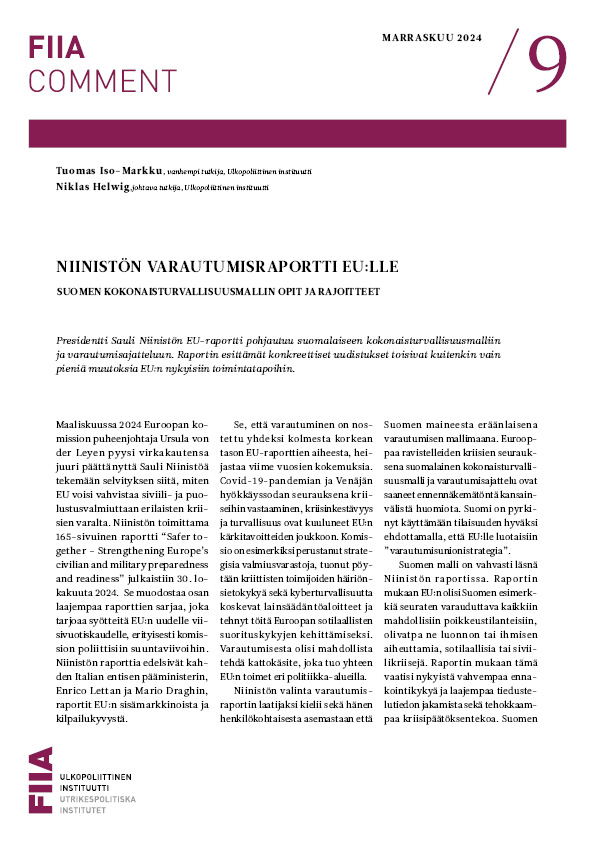It is hard for EU leaders to embrace UK-sponsored reforms, as long as the country’s commitment to the EU is unclear. Therefore, the UK should convince others that the reforms it is calling for will strengthen the EU and that the UK government is willing to play its part in addressing the multiple crises the EU is currently facing.
It is hard for EU leaders to embrace UK-sponsored reforms, as long as the country’s commitment to the EU is unclear. Therefore, the UK should convince others that the reforms it is calling for will strengthen the EU and that the UK government is willing to play its part in addressing the multiple crises the EU is currently facing.
The United Kingdom (UK) is often argued to have a problematic relationship with the European Union (EU). The ongoing debate over its membership is the most recent manifestation of its reservations towards the development and functioning of the EU.
After Prime Minister David Cameron’s recent election victory, the UK government is now engaged in negotiations aimed at reforming the EU and striking a new deal for the UK. It has also called for a referendum, which will offer the UK electorate a simple choice between remaining in on new terms, or leaving the EU altogether.
The referendum is planned to take place before the end of 2017. Given the approaching national elections in Germany and France in 2017, Cameron and his EU peers have been advised to reach an agreement swiftly, and have the vote sooner rather than later.
EU leaders hope that Cameron’s recent victories – the Scottish referendum and the UK general election – will carry him through the EU referendum. He has promised to fight for continued UK membership of the EU providing that he is satisfied with the renegotiation outcome.
Much of the diplomatic action between the UK and other EU member states has focused on the legal and political implications of the UK demands. Moreover, the key points of the UK agenda – as announced in the European Council meeting in June 2015 – have been seen to reflect a sober analysis of what is considered feasible in Brussels and other EU capitals.
Instead of an immediate EU Treaty reform, Cameron wants to secure legally binding and irreversible guarantees that the Treaties will be amended, in due course. So far, the only clearly stated proposal with direct reference to the EU Treaties is the UK’s demand to detach itself from the Treaty objective to move towards an ‘ever closer union’.
The other proposals, such as improving the EU’s competitiveness by reducing red tape and agreeing on new external trade arrangements, are already high on the European Commission’s and several member states’ political agendas. The UK suggestion to enhance the role of national parliaments in EU decision-making might also lead to an acceptable compromise, if concerns related to the efficacy of EU law-making are adequately addressed.
Addressing the implications of the deepened eurozone integration for non-euro members, and limiting the intra-EU migrants’ rights to work-related benefits may turn out to be more difficult to resolve. Yet EU member states have signalled their willingness to consider the UK objectives.
The UK has also underlined that instead of merely attempting to advance its national interests through renegotiation, it is presenting a reform agenda, which would serve the interests of the EU as a whole. The recently voiced frustration about the lack of progress in the process on both sides of the English Channel suggests that this message has not yet been received without reservations.
First, in many EU capitals, Prime Minister Cameron’s EU policy continues to resonate first and foremost with his domestic challenges related to the increased Euroscepticism in the UK in general, and his Conservative Party in particular.
Second, Cameron’s renegotiation and referendum process is seen to be symptomatic of the increasingly marginal position of the UK in the EU, and driven by national rather than European interests.
Third, it is difficult for EU leaders to embrace UK-sponsored reforms, or to agree upon specific UK demands, as long as the country’s commitment to, or indeed continuing membership of, the EU is unclear.
These difficulties could be addressed, at least in part, by further attempting to steer the debate away from the UK-specific demands, and laying out a convincing vision for a positive UK contribution to the reformed EU.
Prime Minister Cameron’s recent speech in London is a step in the right direction. He suggested that the UK would be willing to support, and not block, the envisaged Economic and Monetary Union reforms, if the eurozone’s decisions and costs were not imposed on the UK. In addition, he argued that the UK is seeking a central position in the reforms aimed at enhancing the EU’s competitiveness and economy, and that the EU membership is also a question of national security for the UK.
To further convince others that the UK is seeking to engage rather than disengage with the EU, a swift turn towards more constructive EU policies and positions in general would also help the Prime Minister, and his reform and renegotiation process, to gain credibility on the continent. It would also enable him to address criticism suggesting that the UK is aiming to cherry-pick in its relations with the EU.
The UK has played a pivotal role at several critical junctures of the development of the EU. It is one of the key architects of the EU’s single market as well as eastern enlargement. Moreover, UK support has been decisive for the key stages of the EU’s security and defence policy. Further, it has contributed significantly to the EU’s credibility as an actor in the global arena.
Given its previous achievements in shaping the EU, as well as its economic clout, the UK is well placed to regain its position at the core of the EU, and assume influence commensurate with its size. To do that, it should work hard to convince the other member states that it is still committed to the EU, and also willing to share the burden in addressing the multiple crises that the EU is currently facing.









